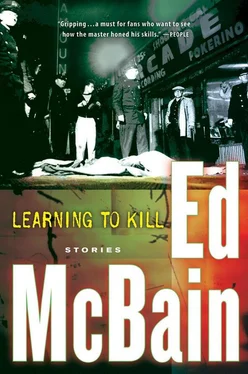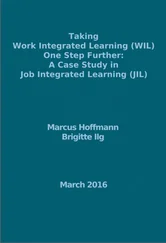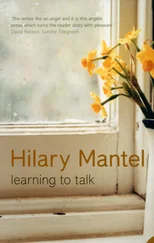“She drank her coffee and ate her English muffin, and then — the way you did every morning — you gathered up the cups and the napkins and the crumbs and whatever, and you rushed out with them before Mr. Godrow arrived. Only this time, you were disposing of evidence. Where’d you take them? The garbage cans on Columbus Avenue? Do they collect the garbage early, Freddie?”
“I... I...”
“You knew the symptoms. You watched, and when you thought the time was ripe, you couldn’t resist boasting about what you’d done. Mary was making a call. You also knew how these calls worked because you made them yourself. There was usually a pause in the conversation while someone checked with the chef. You waited for that pause, and then you asked Mary if she knew why she was feeling so ill. You asked her because you weren’t making a call, Freddie, you were plugged in on her extension, listening to her conversation. She recognized your voice, and so she answered you in English. You told her then, and she jumped up, but it was too late, the convulsion came. Am I right, Freddie?”
Freddie nodded.
“You’d better come with us,” I said.
“I... I still have to stamp the quotations on these,” Freddie said.
“Mr. Godrow will get along without you, Freddie,” I said. “He’ll get himself a new boy.”
“I... I’m sorry,” Freddie said.
“This is terrible,” Godrow said.
“Think how Mary Chang must have felt,” I told him, and we left.
A continuing character in the 87th Precinct novels is a villain known as the Deaf Man, Carella’s nemesis, even as Moriarty was Sherlock Holmes’s. Whenever the Deaf Man is on the scene, the cops of the 87th behave like Keystone Kops. He made his first appearance in 1960, in a novel titled The Heckler. Since then, there have been five other novels in which the Deaf Man has wreaked havoc in the old Eight-Seven, the most recent of which was Hark! Traditionally, the Deaf Man will concoct a brilliant caper that is foiled not by any clever deduction on the part of the Eight-Seven’s stalwarts, but instead by pure chance or misfortune.
But think about this:
Five years before the Deaf Man made his first appearance, I wrote the following story about some guys planning to rob a bank. It appeared under the Richard Marsten byline, in the September 1955 issue of Manhunt.
* * *
“Friday is our big day,” the girl said.
She drained the remains of her Manhattan, and then fished for the cherry at the bottom of the glass. Anson Grubb watched her, no sign of interest on his face.
The girl popped the cherry into her mouth and then touched her fingers lightly to the napkin in her lap. The gesture was a completely feminine one, turned gross and somehow ugly by the girl herself. She was a big girl, her hair inexpertly tinted blonde, her lipstick badly applied. Anson had never liked cheap merchandise, and he winced inwardly as the girl munched on the cherry, her mouth working like a garbage disposal unit.
“The first and the fifteenth,” the girl said around the shredded remnants of the cherry, “and Friday is the fifteenth.”
“Payday, huh?” Anson asked, sipping at his scotch, apparently bored with all this shoptalk, but with his ears keyed to every syllable that came from her mouth.
“The steel mill and the airplane factory both,” she said, nodding. “Can’t we have another round, Anse?”
“Sure,” Anson said. He signaled the waiter and then added, “Well, it’s only twice a month, so that isn’t too bad.”
“That twice a month is enough to break our backs, Anse,” the girl said, impatiently looking over her shoulder for the waiter. “On those paydays, we must handle close to $500,000, cashing checks for the plants.”
“That right?” Anson said.
“Sure. You’d never think our little bank handled so much money, would you?” The girl gave a pleased little wiggle. “We don’t, usually, except on the first and the fifteenth.”
“That’s when the plants send over their payrolls, huh?” Anson asked. The waiter appeared at his elbow. “Two of the same, please,” he said. The waiter nodded and silently vanished.
“This is a nice place,” the girl said.
“I figured you needed a little relaxation,” Anson said. “Enjoy yourself before the mad rush on Friday, you know...”
“God, when I think of it,” the girl said. “It’s enough to drive you nuts.”
“I can imagine,” Anson said. “First those payrolls arriving early in the morning, and then the employees coming to cash their checks later in the day. That must be very trying.”
“Well, the payrolls don’t come on Friday,” the girl said. The waiter reappeared, depositing their drinks on the table. The girl lifted her Manhattan, said, “Here’s how,” and drank.
“Oh, they don’t come on Friday?” Anson said.
“No, they’ll reach us Thursday afternoon.”
“Well, that’s sensible, at least,” Anson said. He paused and lifted his drink. “Probably after you close those big bronze doors to the public, huh?”
“No, we don’t close until three. The payrolls get there at about two.”
“Oh, that’s good. Then the payrolls are safe in the vault before three.”
“Oh, sure. We’ve got a good vault.”
“I’ll bet you do. Do you want to dance, honey?”
“I’d love to,” the girl said. She shoved her chair back with all the grace of a bus laboring uphill. She went into Anson’s arms, and he maneuvered her onto the floor skillfully, feeling the roll of fat under his fingers, his mouth curled into a distasteful smile over her shoulder.
“Yep,” the girl said, “Friday is our big day.”
No, Anson thought. Thursday is our big day.
Jeremy Thorpe stood at the far end of the counter, the ballpoint pen in his hand. He took out his passbook, opened it before him, and then drew a deposit slip from one of the cubbyholes beneath the counter. He flipped the deposit slip over so that he could write on the blank yellow surface, and then he knotted his brow as if he were trying to work out a tricky problem in arithmetic.
He drew a large rectangle on the back of the deposit slip. On the north side of the rectangle, he drew two lines which intersected the side, and between the lines he scribbled the word “doors.” In the right-hand corner of the rectangle, he drew a small square resembling a desk, and he labeled it “mgr.” Across the entire south side of the rectangle, opposite his “doors,” he drew a line representing the half wall dividing the tellers’ cages from the remainder of the bank. He jotted four lines onto this to show the approximate position of the cages, and another line to indicate the locked doorway that led to the back of the bank and the vault. In the left-hand corner of his plan, the east and north sides intersected in a right angle which he labeled “counter.”
He folded the deposit slip in half, slipped it into his coat pocket, took a new deposit slip from the cubbyhole, and filled it in for a deposit of five dollars. In the space that asked for his name, he did not write Jeremy Thorpe. He carefully lettered in the words “Arthur Samuels.” He brought the deposit slip and a five-dollar bill to one of the cages, waiting behind a small man in a dark suit.
This was the third time he’d been inside the bank. He’d opened an account close to a month ago with fifty dollars. He’d added twenty dollars to it last week. He was adding five dollars to it now. He’d used different tellers for each deposit. The teller who took his passbook and money now had never seen Jeremy Thorpe before, and he certainly didn’t know his name wasn’t really Arthur Samuels. The teller stamped the book, put the money and deposit slip into his drawer, and handed the book back to Jeremy. Jeremy put the passbook into its protective case, and then walked directly to the doors, glancing once at the manager’s desk which was on his left behind a short wooden railing. The big bronze doors were folded back against the wall, and the uniformed bank guard was chatting with a white-haired woman. Jeremy pushed open one of the glass doors and walked down the stairs into the sunshine. This was Tuesday.
Читать дальше












